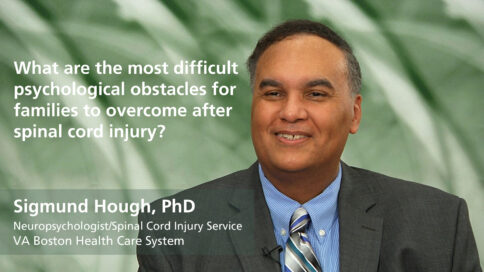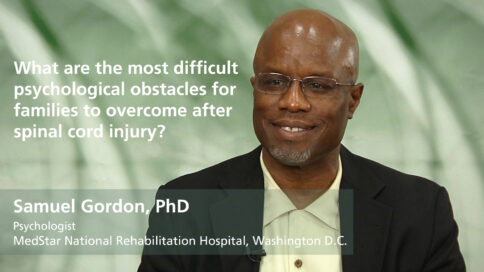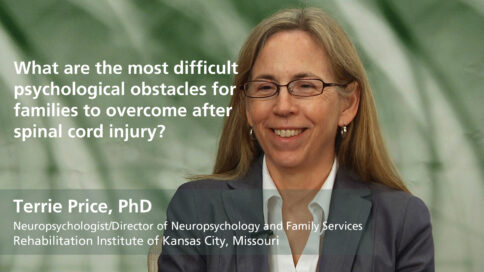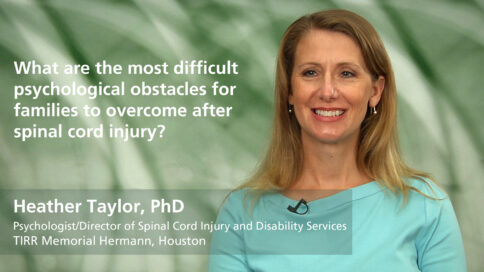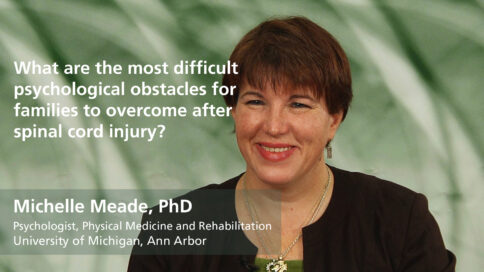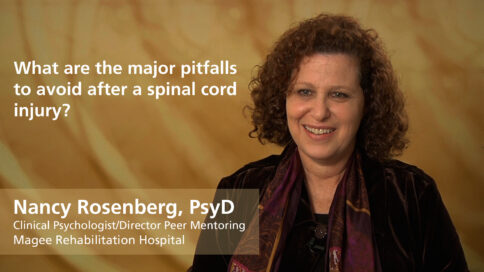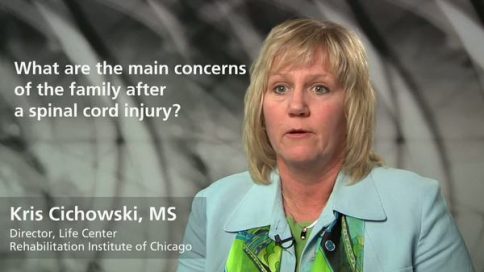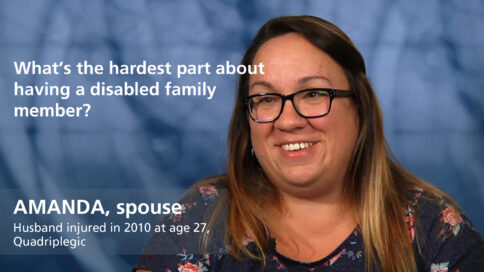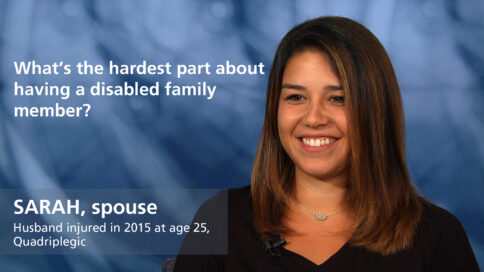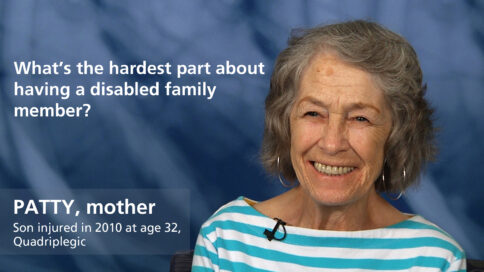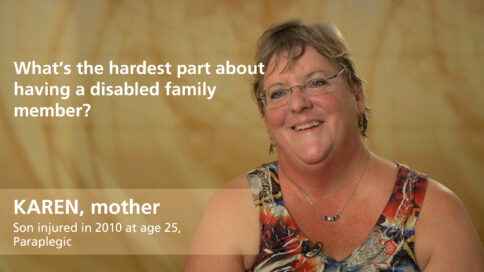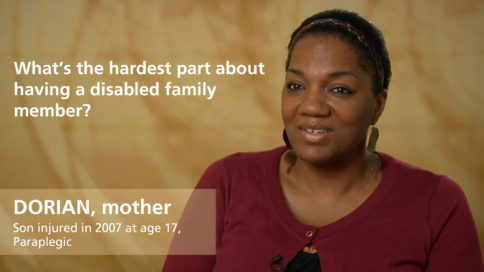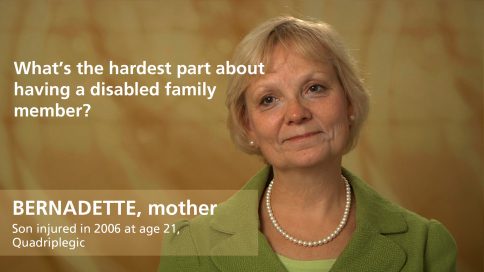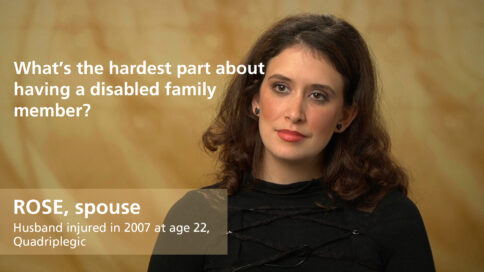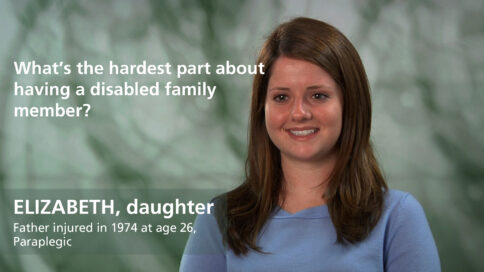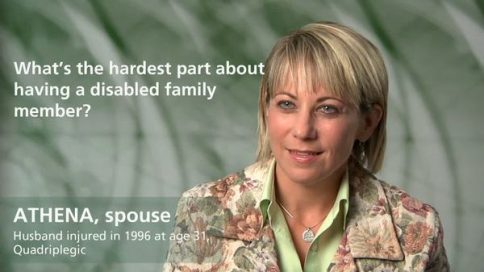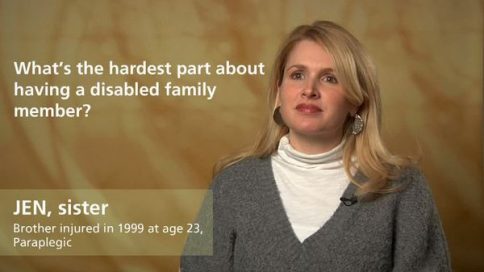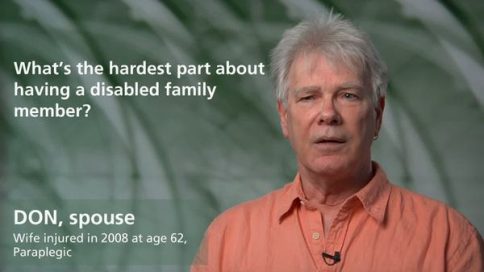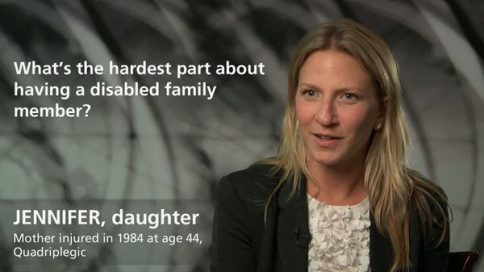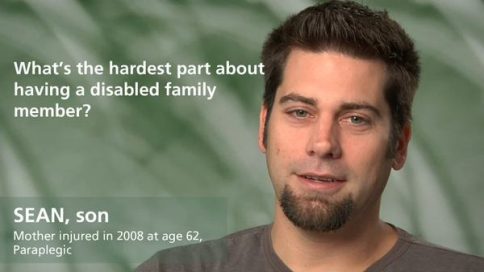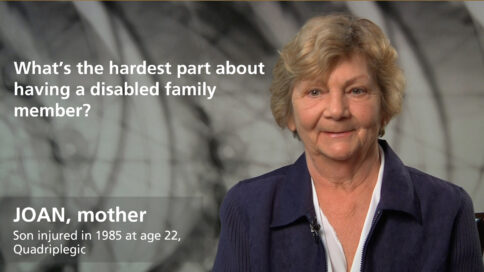What are the most difficult psychological obstacles for families to overcome after spinal cord injury? - Laura Tuck, PsyD
|
|
What are the most difficult psychological obstacles for families to overcome after spinal cord injury? |
|
Laura Tuck, PsyDPsychologist, Memphis VA Medical Center |
||
| Read Bio | More Videos by Laura Tuck | |
|
Share |
||
Transcript
Certainly one thing that is important to clarify is that it’s not necessarily diagnostic, a lot of what we see is an adjustment, or it’s a response to these major changes in these peoples’ lives. So I might see some anxiety in family members, and often times anxiety might play out where the family is very involved in the patient’s care, and they may not be allowing the person to be as independent as possible. Because they’re jumping in and trying to do everything for them because they’re so worried about their loved one’s well being. Or anxiety can kind of play out as withdrawal, or maybe they’re not as engaged with the team and with their loved one in rehab or long-term planning, because it’s too overwhelming to think about what these things might look like down the road. The family has to conceptualize the changes with the injury too. Or sometimes it can look like irritability. It can be a lot of pressure when you’re trying to think of these different roles of—say that you’re female caregiver of mom taking care of maybe your extended family, being a wife and a caregiver. And, “How do all these line up?” “How do I have my identity of a wife while also helping with very intimate care activities such as bowel and bladder management?” And so it’s important to have open communication about this, so that we can address any of the concerns that come up and validate that these are really normal experiences to go through.
Show Less|
|
||
add
What are the most difficult psychological obstacles for families to overcome after spinal cord injury? |
||
Laura Tuck, PsyDPsychologist, Memphis VA Medical Center |
More Videos by Laura Tuck | |
| Transcriptadd | share | |
Certainly one thing that is important to clarify is that it’s not necessarily diagnostic, a lot of what we see is an adjustment, or it’s a response to these major changes in these peoples’ lives. So I might see some anxiety in family members, and often times anxiety might play out where the family is very involved in the patient’s care, and they may not be allowing the person to be as independent as possible. Because they’re jumping in and trying to do everything for them because they’re so worried about their loved one’s well being. Or anxiety can kind of play out as withdrawal, or maybe they’re not as engaged with the team and with their loved one in rehab or long-term planning, because it’s too overwhelming to think about what these things might look like down the road. The family has to conceptualize the changes with the injury too. Or sometimes it can look like irritability. It can be a lot of pressure when you’re trying to think of these different roles of—say that you’re female caregiver of mom taking care of maybe your extended family, being a wife and a caregiver. And, “How do all these line up?” “How do I have my identity of a wife while also helping with very intimate care activities such as bowel and bladder management?” And so it’s important to have open communication about this, so that we can address any of the concerns that come up and validate that these are really normal experiences to go through.
